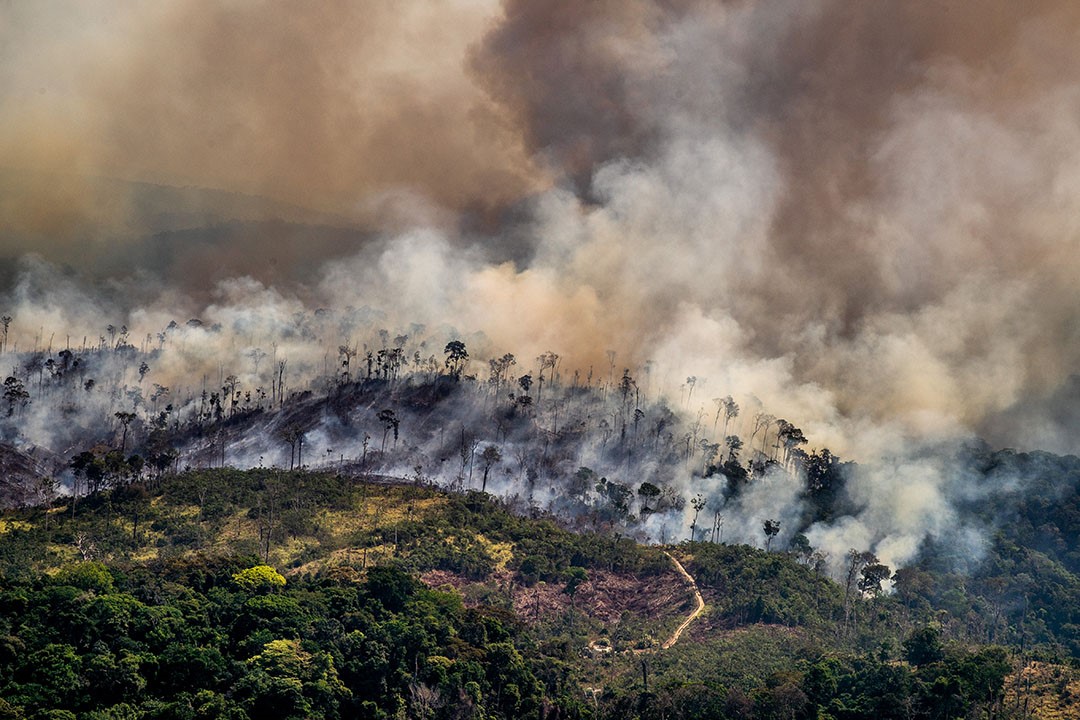This year (2020) the Amazon Rainforest and other Brazilian biomes were once again ravaged by horrific fires. Three of us sat down and talked a bit about the incidents — part of the conversation were Geologist Dorília Ferreira da Cunha, Biologist Gabriel Costa Oliveira and Sina von der Heyde from Melis Communication Team.
Author: Sina von der Heyde, with research by Gabriel Costa Oliveira
Brazil’s ecosystems, belonging to the naturally and culturally most diverse places on our planet, were once again facing tremendous destruction through fire incidents during summer 2020. In August the INPE, Brazils National Institute for Space Research, reported more than 29,307 fires in the Brazilian Amazon Region and sadly since July the Pantanal, one of the largest wetland biomes on our planet, was severely affected by fires. The outbreaks also affect other areas such as the Cerrado Savannah or the Atlantic Forest along the Brazilian coast.
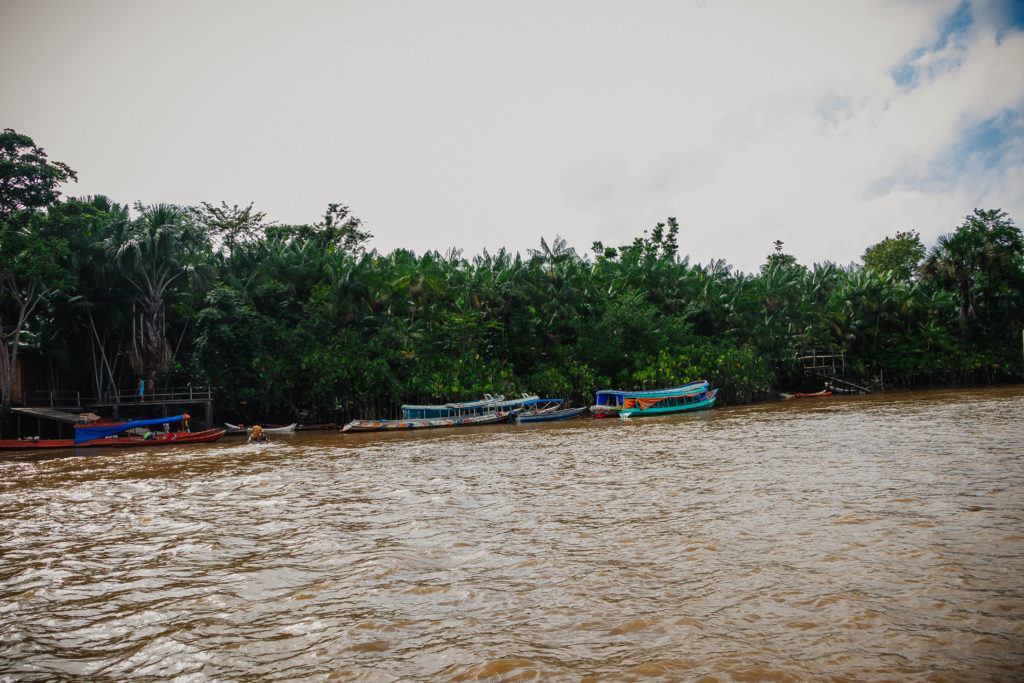
The world is losing climatically important biomes inhabited by magnificent species and people that live in these regions are facing serious problems. But how exactly are nature and people affected and how can Meli help fight all of this?
::
Desertification, effects on local climate and biodiversity-loss
„The Amazon Rainforest is not adapted to fire“
— Gabriel Costa Oliveira
For geologist Dorília Ferreira da Cunha, the worst consequence of the fires on an environmental scale is the reinforced desertification of the burned areas, which is followed by a decrease of rain and drying up of water reserves. Many scientists warn that this could prospectively transform large parts of Brazil into a savannah, which already happened in past climate cycles. This would have immense effects on the local climate and therefore on the biosphere. Other scientists warn that due to the weakening of soils the vegetation cover could change as well — species that grow better on these weakened soils could suppress other tree or plant species.
Of course the destruction of ecosystems is accompanied by severe threats to the populations of animal species, many of which are already under threat. The recent fires in the Pantanal that destroyed an area nine times the city of São Paulo left uncountable reptiles, such as caimans, coatis and many bird species dead. More than 20% of Brazil’s areas inhabitated by the endangered jaguars, has been destroyed already!
::
Effects on Indigenous and Traditional Communities
„For the Indigenous and Traditional Communities as well as the Smallholders it is a question of life and death.“
— Gabriel Costa Oliveira
The recent destruction of the forest and the thereby reinforced climatic changes also have disastrous consequences for the people living in and of the forest.
The story of the Guató, one of the oldest original communities in the Pantanal, is a prime example for the problems that Indigenous and Traditional Communities are currently facing amidst the fires. Already before the ravaging fires in the summer the community had problems with finding enough water as this year was the hottest of the last two decades. But now more than 80% of their Indigenous territory was lost to the recent fires, says the local Instituto Centro de Vida (ICV). But as biologist Gabriel Costa Oliveira explains, these outbreaks are not natural but rather a new round of attacks aimed at Indigenous populations.
Beyond these direct consequences, says Dorília, who is a member of a Quilombola community, the fires not only change the way the traditional communities interact with their natural environment but they also lead younger generations away from traditional knowledge. As livestock farming is more and more present in their regions and less rain is falling it is increasingly hard for the communities to follow their traditional agricultural practices, such as the cultivation of manioc or black pepper. More and more often the communities are forced to chop down wood, sell it and look for other ways to sustain themselves.
::
How we got here and how Meli will help
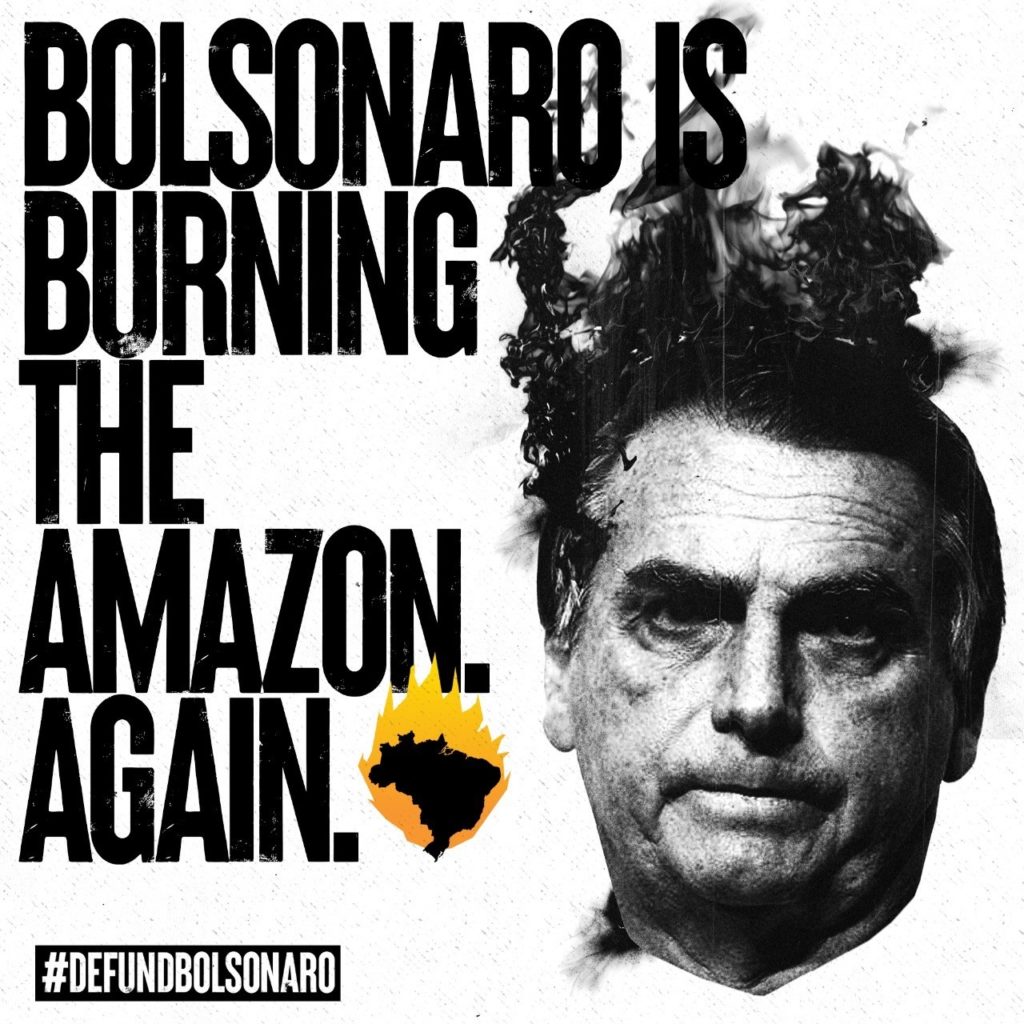
Artwork by the Brazilian organization DefundBolsonaro
The recent fires are promoted for illegal lodging, livestock farming, mining use and agriculture and have been a big threat to the Amazon Rainforest and other biomes in Brazil for many decades, if not to say since the colonization of the region.
Since the inauguration of the right-wing politician Jair Messias Bolsonaro in January 2019 however, the incidents augmented drastically. In order to boost Brazil’s economy governmental environmental agencies were systematically dismantled and slash-and-burn operations were encouraged. This destroyed thirty years of work and environmental policies inaugurated by the Brazilian Democratic Constitution of 1988 and eco 92 agreements, explains Gabriel. In the last dry season fires then reached an unprecedented climax resulting in intense national and international concern. But still, this year the horrific events seem to be repeating themselves while Bolsonaro keeps denying their severeness.
::
::
„Meli enters this chaotic context and offers an escape for the traditional communities“
— Dorília Ferreira da Cunha
The uniqueness of these ecosystems lies in their natural but also their cultural diversity that goes back thousands of years. It is this diversity that has to be revalued and protected which is one of the many things Meli aims at. With bringing meliponiculture and traditional knowledge about this practice to indigenous and traditional communities Meli enables them to sustain themselves. But as Meli works with bees that are endemic to the Amazon this will also have a highly positive effect on local biodiversity!
With further direct protection tools and educational projects, Meli ensures a long lasting conservation of the Amazon as well as of the traditional knowledge. So Meli addresses, as Gabriel explains, „social justice and nature conservation“ and like this solves the most pressing problems in the Amazon Region!
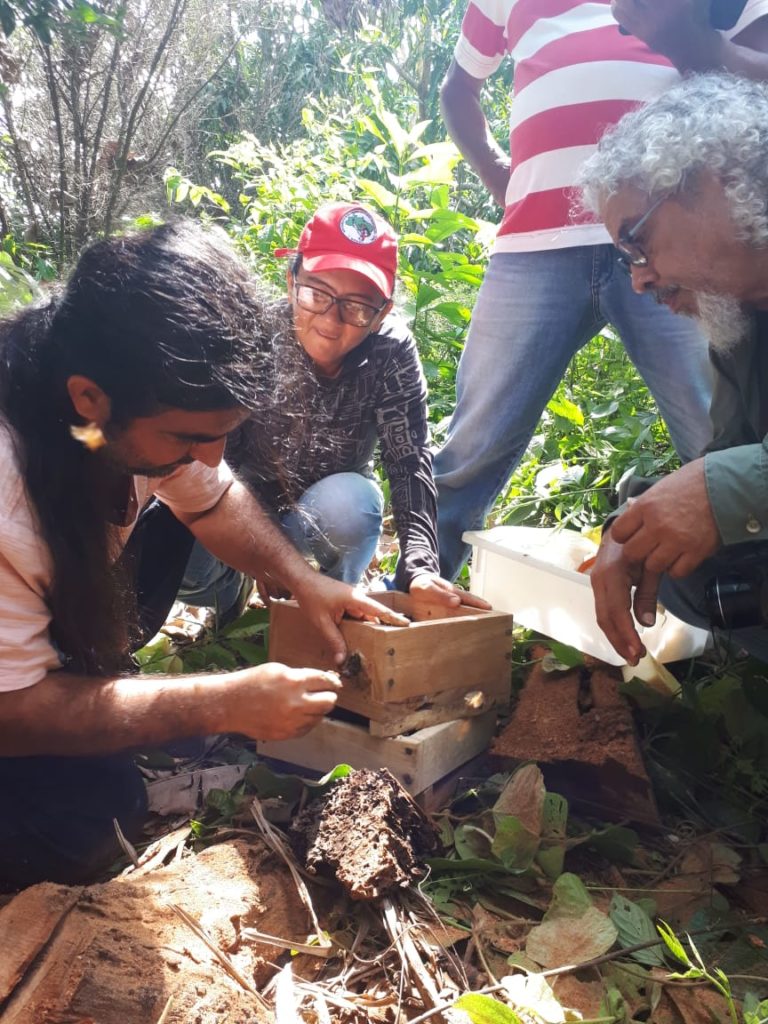
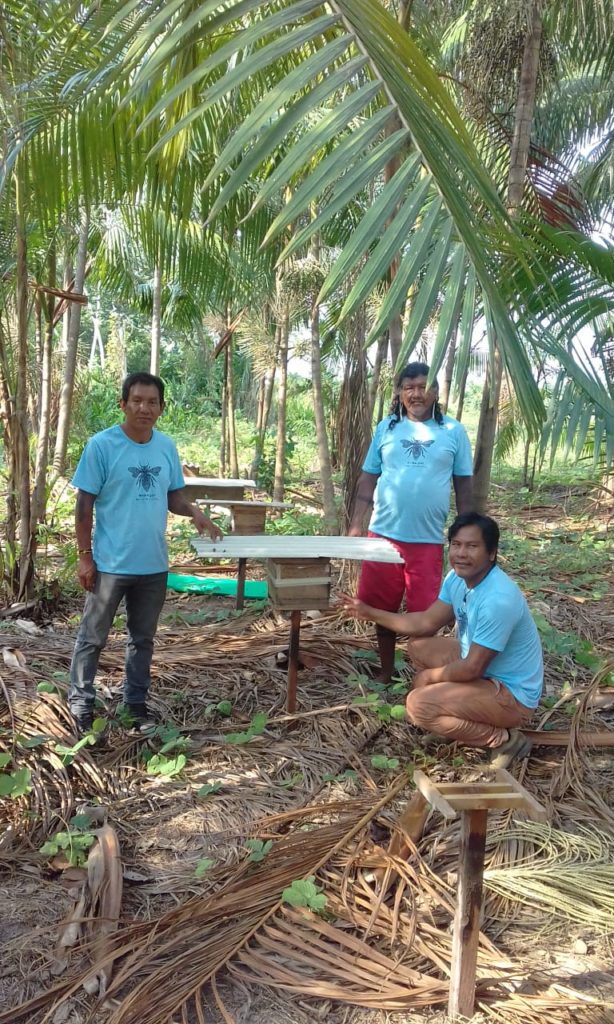
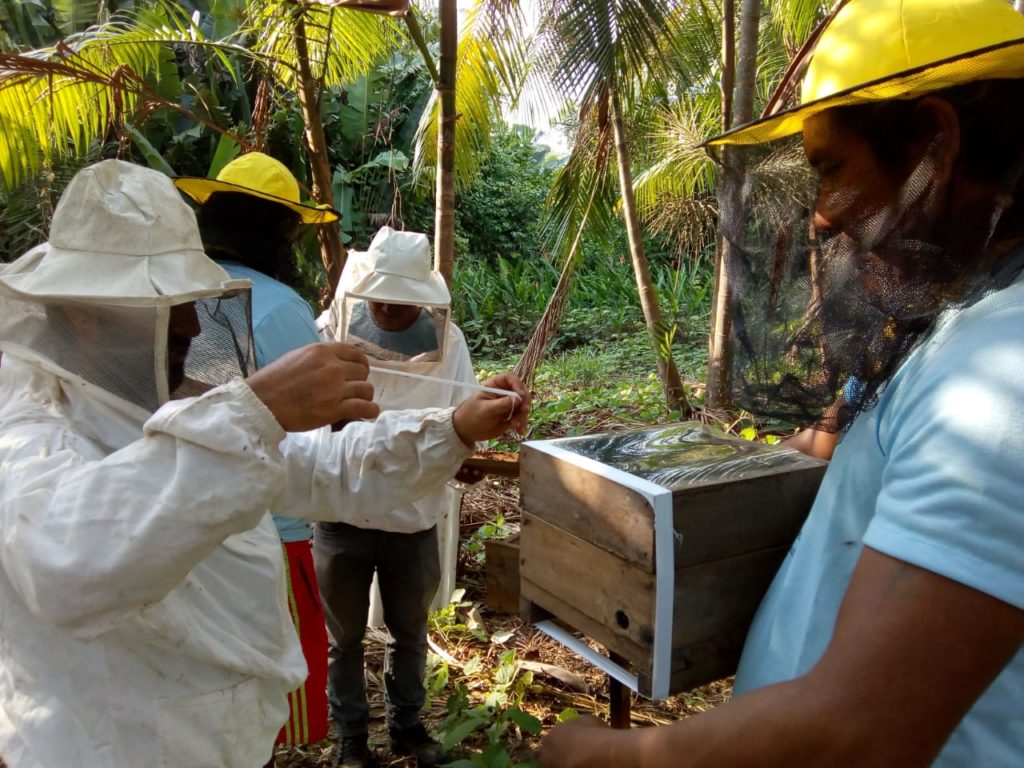
If you want to be updated about Meli’s efforts and progresses follow us on Social Media, read up on our recent topics in our Blog or check our Podcast. If you or your company are interested in collaborating with us and make a positive change in the Amazon Region with us, feel free to email us via hello@meli-bees.org.
We would be happy to hear from you, because one thing is clear: this crisis can only be solved if we join our forces globally and show the current government that our hearts care for the Amazonian Rainforest!
Title Image: Deforestation and Fire Monitoring in the Amazon in September 2020 by Christian Braga (Greenpeace), September 5, 2020
Your donation can have a positive impact on the world!
Subscribe to receive our Newsletter!
Find us also at Linkedin, Facebook, Twitter or Instagram
www.meli-bees.org
❤️

